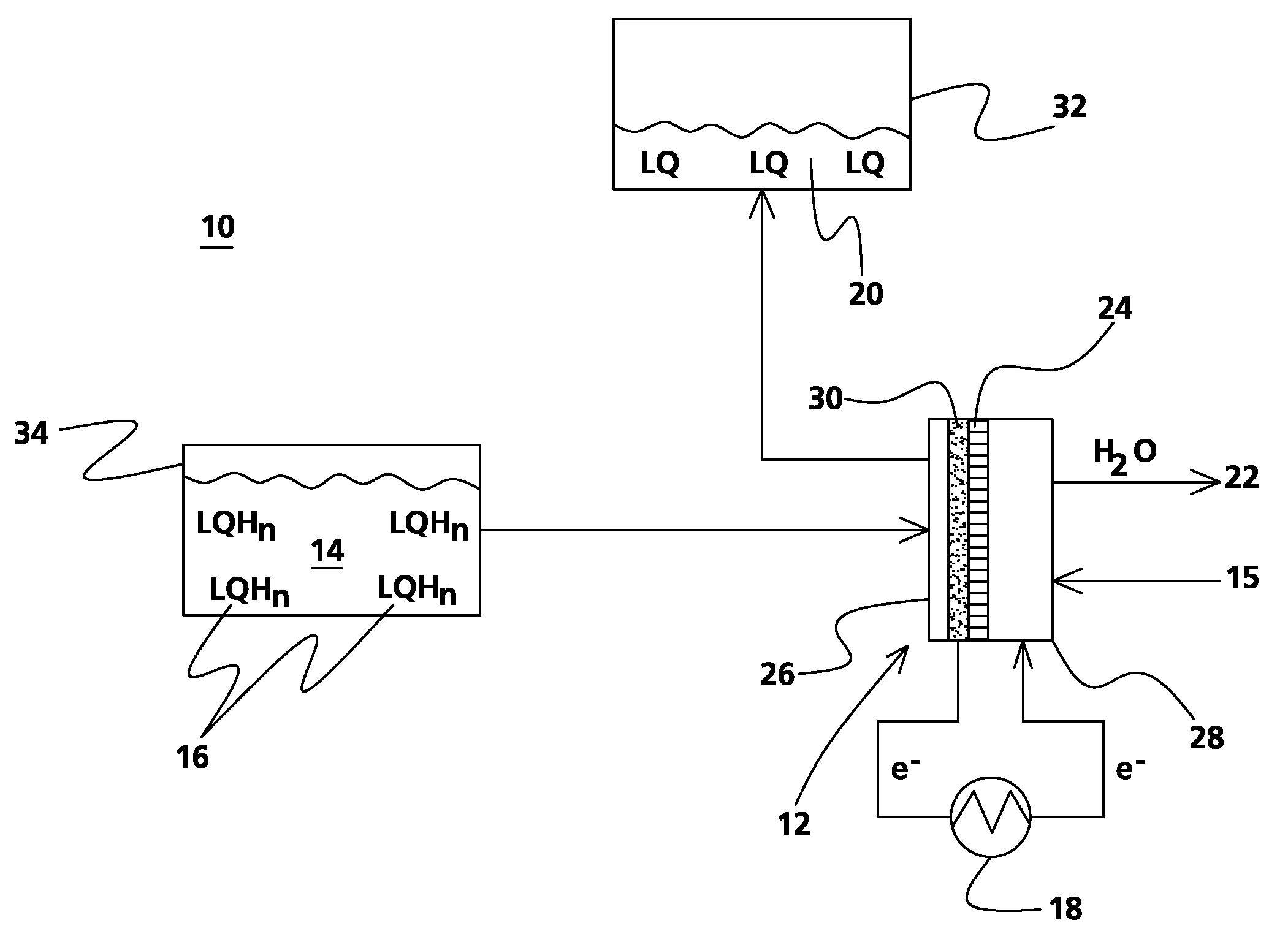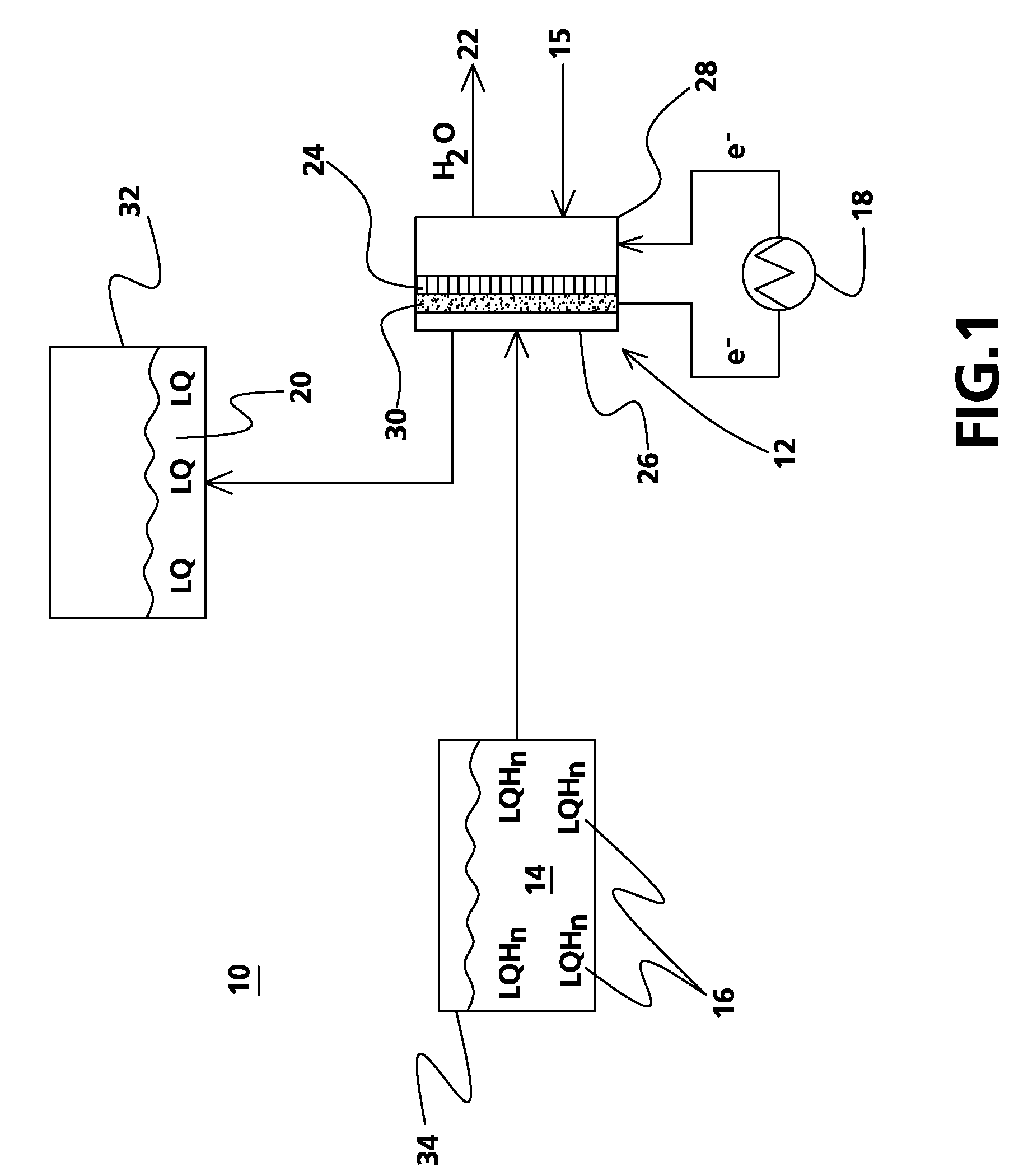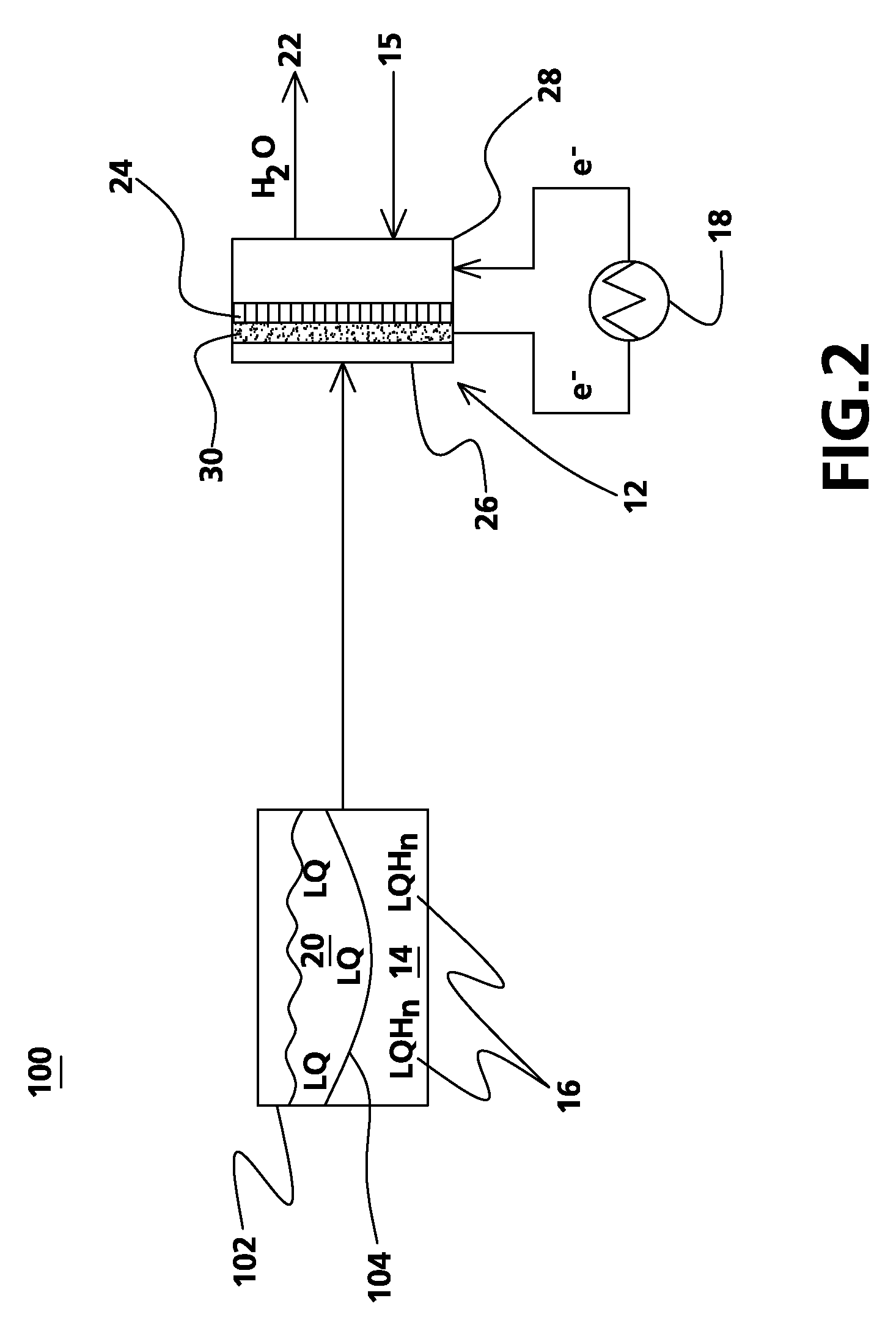Method and apparatus for electrochemical energy conversion
a technology of electrochemical energy and equipment, applied in the direction of electrochemical generators, cell components, cell component details, etc., can solve the problems of low volumetric energy density, difficult effective hydrogen storage, and high pressure or liquid hydrogen storage options
- Summary
- Abstract
- Description
- Claims
- Application Information
AI Technical Summary
Benefits of technology
Problems solved by technology
Method used
Image
Examples
example
[0025]Experiments with the use of a liquid hydrogenated carbazole demonstrated the use of liquid organic compounds as a fuel in an electrochemical energy conversion device. A hydrogen fuel cell with platinum catalyst, as shown in FIG. 3, was filled with a diluted solution of dodecahydrocarbazole in acetonitrile and demonstrated an OCV of 340 mV with oxygen as an oxidant. Using a carbon black / Ni / Pt—C electrode with dodecahydrocarbazole as the carrier increased the OCV to 650 mV.
PUM
| Property | Measurement | Unit |
|---|---|---|
| temperature | aaaaa | aaaaa |
| electrochemical reaction | aaaaa | aaaaa |
| surface-area | aaaaa | aaaaa |
Abstract
Description
Claims
Application Information
 Login to View More
Login to View More - R&D
- Intellectual Property
- Life Sciences
- Materials
- Tech Scout
- Unparalleled Data Quality
- Higher Quality Content
- 60% Fewer Hallucinations
Browse by: Latest US Patents, China's latest patents, Technical Efficacy Thesaurus, Application Domain, Technology Topic, Popular Technical Reports.
© 2025 PatSnap. All rights reserved.Legal|Privacy policy|Modern Slavery Act Transparency Statement|Sitemap|About US| Contact US: help@patsnap.com



